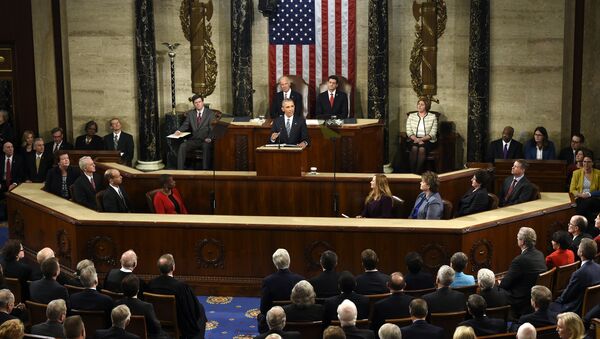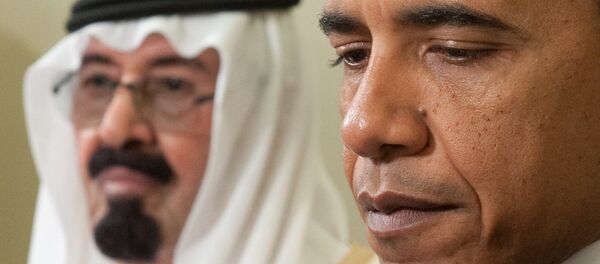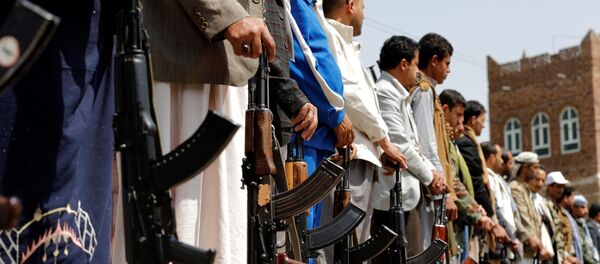The interview came after the US Congress overwhelmingly voted to overturn President Barack Obama's veto of the new bill, which allows the families of the victims of the September 11 attacks to sue Saudi officials for their alleged involvement in the attacks.
This is the first time the US Congress has blocked a presidential veto during Obama's time in office. Now the controversial bill, called the Justice Against Sponsors of Terrorism Act, will become a law.
"This is a very nasty and vindictive law that is targeting many countries, but mostly Saudi Arabia," Abdul-khaleq Abdullah said.
He made it plain that this law will most likely weigh heavily on the financial aspects of the relationship between the United States and Saudi Arabia.
"This is a greedy law in the sense that it really targets billions of dollars of Saudi Arabian investment in the United States," he said, adding that Riyadh is almost certain to react by reconsidering its US investment policy.
Also, given that many see the bill as a sign that an anti-Saudi Arabian campaign is in full swing in the United States, we can expect a scaling down of Riyadh's cooperation with Washington on many issues, including those related to fight against terrorism, according to him.
" So this is a bad law both for Saudi Arabia and the United States, and this document is not aimed at addressing grievances of relatives of 9/11 victims," Abdul-khaleq Abdullah added.
He said that the law may finally lead to Saudi Arabia totally reviewing its 70-year special relationship with the United States, including issues pertaining to the use of petrodollars and the countries' military partnership.
Saudi Arabia: US 9/11 law will erode principle of sovereign immunity, affecting all nations and may cause "serious unintended consequences"
— BNO News (@BNONews) 29 сентября 2016 г.
Following the Wednesday vote, White House spokesman Josh Earnest called the Congressional decision the most embarrassing thing US lawmakers have done in several decades.
Congress insists to punish Saudi Arabia, US policies will be tough in region, JASTA undermines trust between Arabs and US #قانون_جاستا
— Abd El-Monem Halawa (@monemhalawa) 29 сентября 2016 г.
Earlier this week, the White House argued that the bill could create a dangerous precedent, and that other countries could be allowed to sue the United States for its actions abroad.
US Defense Secretary Ashton Carter also voiced his concerns in a separate letter.
He said that placing US interests in the hands of foreign courts could put national security at risk. Congressional lawmakers in their turn insist that the bill could allow the families of victims to seek justice and closure for the atrocities that occurred in 2001.




